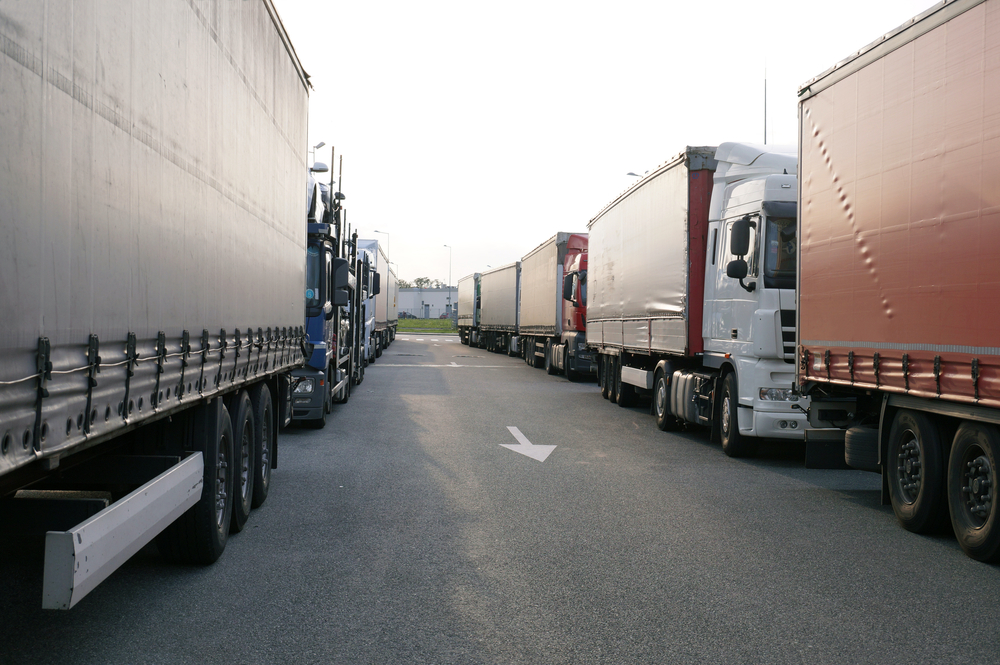Introduction
Freight shipping is an essential aspect of modern commerce, facilitating the movement of goods across vast distances. The choice of shipping method holds significant implications for businesses, affecting costs, delivery times, and overall logistics efficiency. When it comes to freight transportation, two primary methods dominate the landscape: Less-Than-Truckload (LTL) and Full-Truckload (FTL). Understanding the distinctions between these methods is crucial for businesses to make informed decisions that align with their specific shipping needs and objectives.
LTL and FTL represent distinct approaches to freight shipping, each tailored to accommodate different shipment sizes and logistical requirements. In essence, LTL shipments occupy a portion of a trailer alongside cargo from other shippers, making it a cost-effective solution for smaller loads. Conversely, FTL involves dedicating an entire truck trailer to a single shipment, making it ideal for larger loads or shipments requiring expedited delivery. By delineating the characteristics and advantages of each method, businesses can optimize their shipping strategies to maximize efficiency and minimize costs.
Understanding LTL Shipping
Less-than-truckload (LTL) shipping is a method of freight transportation typically utilized for smaller loads that do not require an entire truck trailer. In less-than-truckload shipping, shipments from multiple shippers are consolidated into a single trailer, optimizing space and resources. This concept of consolidation allows businesses to efficiently utilize available space, reducing the overall cost per shipment. LTL shipping is particularly well-suited for shipments that occupy less than six pallets typically, making it an ideal solution for businesses with smaller inventory needs or those shipping goods to multiple destinations.
One of the primary benefits of LTL shipping is its cost-saving potential for smaller shipments. By sharing trailer space with other shippers, businesses can significantly reduce transportation costs compared to booking an entire truck trailer for a relatively small load. Additionally, LTL shipping contributes to environmental sustainability by minimizing empty miles traveled.
Since trailers are filled with cargo from multiple shippers, there are fewer instances of trucks traveling long distances with empty spaces, resulting in reduced fuel consumption and emissions. Thus, LTL shipping not only offers economic advantages but also aligns with eco-friendly practices, making it a favorable choice for businesses seeking efficient and sustainable freight transportation solutions.

Key Considerations for LTL Shipping
In the realm of LTL shipping, understanding the freight classification system is essential. Freight classification categorizes goods based on various factors such as density, storability, and handling requirements. Each item is assigned a specific freight class, which determines shipping rates and regulations. Familiarizing oneself with this classification system provides insights into how shipments are priced and helps in accurately estimating shipping costs. Knowing the freight class of your shipment is crucial for obtaining accurate quotes from LTL carriers, as rates are often determined based on the classification of the goods being shipped.
LTL carriers play a pivotal role in the transportation of smaller loads, offering services that cater specifically to the needs of shippers with less-than-truckload shipments. These carriers operate a network of routes and distribution centers to efficiently move freight across various destinations. Understanding the capabilities and coverage of different LTL carriers is vital for selecting the most suitable provider for your shipping needs. Additionally, LTL carriers often offer additional services such as tracking, insurance, and specialized handling, enhancing the overall shipping experience for businesses.
Navigating the complexities of LTL shipping often involves the assistance of freight brokers who specialize in connecting shippers with the most suitable carriers. LTL freight brokers leverage their industry expertise and extensive network of carriers to negotiate competitive rates and ensure timely delivery of shipments. These brokers act as intermediaries, facilitating the coordination between shippers and carriers to streamline the shipping process. By partnering with LTL freight brokers, businesses can access a broader range of carrier options, optimize shipping routes, and mitigate logistical challenges, ultimately enhancing efficiency and reducing costs.

Understanding FTL Shipping
Full-truckload (FTL) shipping involves the transportation of goods that fill an entire truck trailer. Unlike LTL shipping, where multiple shipments from different shippers are consolidated into one trailer, FTL shipments occupy the entire space of the truck, dedicated solely to the goods of one shipper. This exclusive use of the trailer offers several advantages, primarily ensuring that the entire truckload is devoted to a single shipment, eliminating the need for stops or transfers along the route. Having an entire truck dedicated to a shipment minimizes handling and reduces the risk of damage or loss, providing peace of mind to shippers regarding the safety and security of their goods during transit.
FTL shipping is typically ideal for larger shipments that exceed the capacity of less than truckload carriers, typically consisting of more than six pallets or requiring a full truckload to accommodate the volume of goods. The scalability of FTL allows businesses to transport substantial quantities of goods efficiently, making it a preferred choice for companies with high-volume shipping needs or those shipping large, bulky items. By utilizing FTL shipping for larger loads, businesses can streamline logistics operations, reduce handling, and optimize transportation costs, maximizing efficiency and minimizing transit times.
One of the primary benefits of FTL shipping is its faster transit times and greater control over delivery schedules. With FTL, shipments are transported directly from the point of origin to the final destination without intermediate stops or handling points, resulting in expedited delivery compared to LTL shipments, which may involve multiple pickups and drop-offs along the route.
Moreover, having full control over the truckload enables shippers to coordinate delivery dates and appointments according to their specific requirements, enhancing flexibility and ensuring the timely arrival of goods. Additionally, FTL shipments offer increased security as the entire trailer is dedicated to the shipment, reducing the risk of tampering or theft associated with shared trailers in LTL shipping.

Key Considerations for FTL Shipping
When engaging in Full-Truckload (FTL) shipping, providing precise commodity specifications is paramount for obtaining accurate quotes. Unlike Less-Than-Truckload (LTL) shipments, where goods from multiple shippers are consolidated into one trailer, FTL shipments involve dedicating an entire truck to a single shipment. This means that the pricing for FTL shipping is often based on factors such as the weight, dimensions, and nature of the goods being transported. By providing exact commodity specifications, shippers enable carriers to assess the space and equipment requirements accurately, facilitating the determination of appropriate rates and ensuring transparency in pricing.
FTL carriers play a crucial role in the transportation of full truckloads, offering specialized services tailored to meet the needs of shippers with large-volume shipments. These carriers operate fleets of trucks equipped to handle various types of cargo, ranging from standard goods to specialized items requiring specific handling or temperature control.
Understanding the capabilities and service offerings of different FTL carriers is essential for selecting the most suitable provider for your shipping needs. Additionally, FTL carriers often provide additional services such as tracking, insurance, and expedited delivery options, enhancing the overall shipping experience for businesses.
The FTL shipping process is characterized by its efficiency and speed, owing to the direct delivery of goods without the need for consolidation or additional stops. Unlike LTL shipments, which may involve multiple pickups and handling points, FTL shipments move directly from the point of origin to the final destination, minimizing transit times and streamlining logistics operations.
However, this expedited service comes at a higher cost compared to LTL shipping, as shippers are required to pay for the entire truckload, regardless of the volume of goods being transported. Despite the higher cost, FTL shipping offers unparalleled speed, reliability, and control over the transportation process, making it a preferred choice for businesses with high-volume shipments or time-sensitive delivery requirements.

Choosing Between LTL and FTL
When deciding between Less-Than-Truckload (LTL) and Full-Truckload (FTL) shipping methods, it’s essential to recap their key differences to make an informed decision. LTL shipping is suitable for smaller loads that do not require an entire truck trailer, offering cost-effective solutions by sharing trailer space with other shippers. On the other hand, FTL shipping involves dedicating an entire truck trailer to a single shipment, ensuring faster transit times, greater control over delivery schedules, and increased security due to exclusive use of the trailer. Understanding these distinctions allows businesses to assess their shipping needs and objectives to determine the most suitable method for their specific requirements.
In developing a decision-making framework for choosing between LTL and FTL shipping, several factors come into play. Shipment size and weight are critical considerations, with LTL generally being more economical for smaller shipments occupying a few pallets, while FTL is preferable for larger loads that fill an entire truck trailer. Moreover, businesses must weigh cost against speed considerations, as LTL shipping offers cost-saving benefits for smaller shipments, whereas FTL provides faster transit times albeit at a higher cost.
Additionally, assessing delivery schedule flexibility is essential, with FTL offering greater control over delivery dates and appointments compared to LTL. For larger-than-average LTL shipments, businesses may also consider the option of “volume LTL,” which provides LTL rates for shipments that exceed typical size and weight limits, offering a middle ground between LTL and FTL shipping methods. If neither of these options seems right for you, it may be worth it to consider intermodal transportation. Learn more about intermodal options in our blog!

Conclusion
In conclusion, selecting the appropriate shipping method, whether Less-Than-Truckload (LTL) or Full-Truckload (FTL), is crucial for achieving optimal efficiency and cost-savings in freight transportation. By understanding the differences between LTL and FTL and considering factors such as shipment size, cost vs. speed considerations, and delivery schedule flexibility, businesses can tailor their shipping strategies to meet their specific needs and objectives. However, navigating the complexities of freight shipping may require further research or consultation with a freight shipping expert. Whether exploring options independently or seeking professional advice, investing time and effort into understanding shipping methods can ultimately lead to more streamlined logistics operations and improved bottom-line results.




